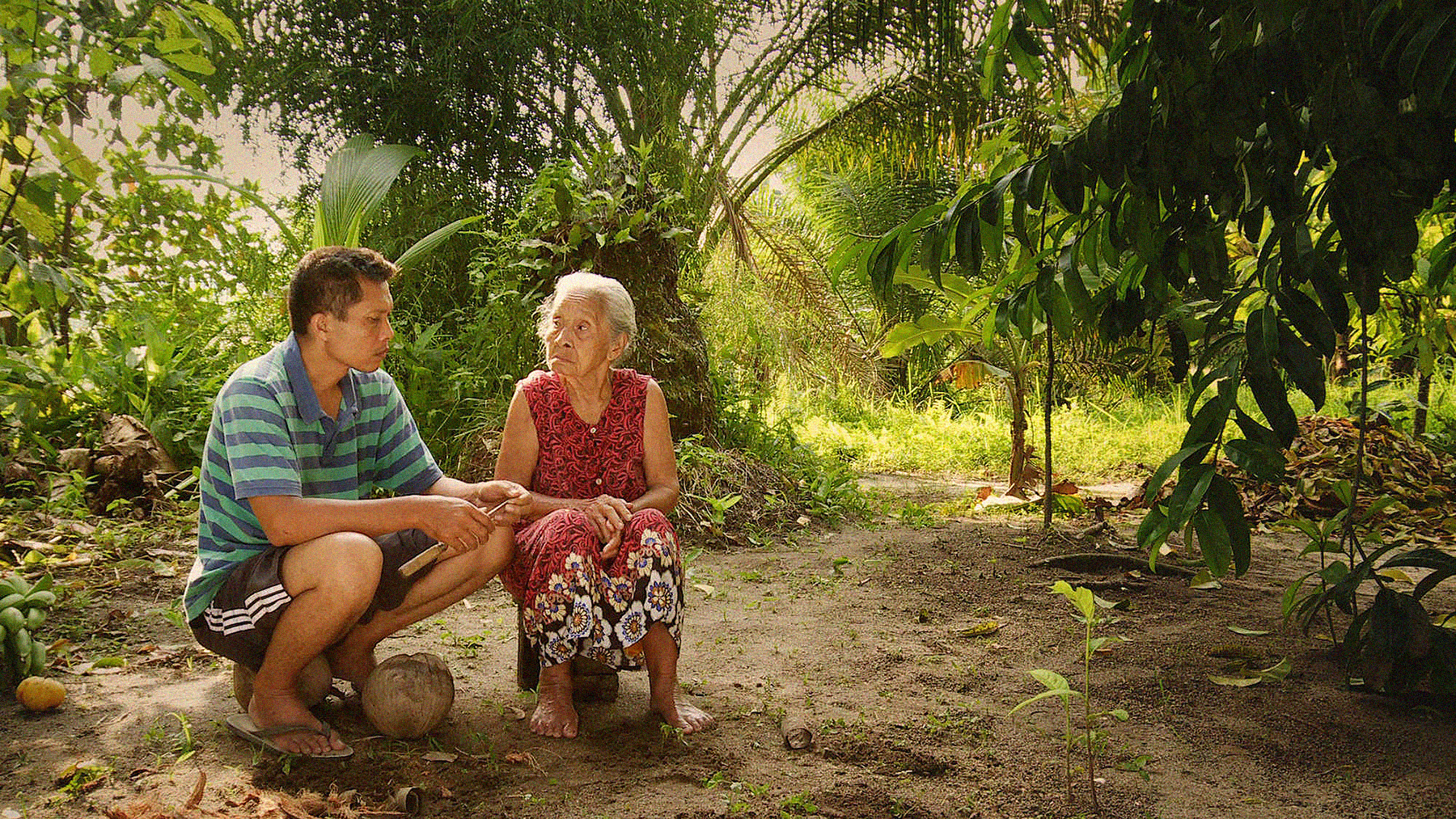
Joshua Oppenheimer’s companion films The Act of Killing and The Look of Silence cinematically explore the enduring consequences of large-scale violence. Last year, both films were screened as part of the Sarajevo Film Festival’s Dealing with the Past project. Read Part I of ‘Reflections’ here. While Oppenheimer’s The Act of Killing interrogates the role of …
Joshua Oppenheimer’s companion films The Act of Killing and The Look of Silence cinematically explore the enduring consequences of large-scale violence. Last year, both films were screened as part of the Sarajevo Film Festival’s Dealing with the Past project. Read Part I of ‘Reflections’ here.
While Oppenheimer’s The Act of Killing interrogates the role of the perpetrators, The Look of Silence questions the possibility of coming to terms with the past. Indeed, the two films work to illuminate several sides of the same story. The Look of Silence follows Adi Rukun and his family as he confronts the man who had murdered his older brother, Ramli, in 1965. Unlike the brazen, boasting perpetrators depicted in the previous film, this one zooms in on those who prefer to remain silent. It is not easy to broach the subject – in the first scene. Adi asks a woman to recall something of the time, only to be told that “nothing happened.”
Despite the widespread reluctance to speak, Adi insists that confrontation is the first step toward healing. Only when perpetrators apprehend the far-reaching consequences of their actions can they recognize their wrongdoing. Perhaps, then, the atmosphere of fear would give way to an understanding tempered with compassion and the willingness to forgive.
But this may have been too idealistic an aim. In many of Adi’s encounters, the perpetrators refuse to assume responsibility, let alone apologize. Posing as a door-to-door optometrist, Adi approaches the collaborators under the pretext of an eye exam. Tensions arise as his interrogative stance puts them on their guard. One man boasts about the murders he had committed before recoiling from Adi’s ‘too-political’ questions. One of the men blatantly refuses to revisit history. “It’s covered up,” he says, “Why open it again? The past is past.” Another becomes menacing, saying, “if you keep making an issue of the past, it will happen again.” Seeking to restore the humanity of the victims, Oppenheimer orchestrates a situation that encourages the possibility of reconciliation. Their hostility proves narratively and cinematically significant – a defensive reaction Oppenheimer had intended to capture on film.
All is not lost, even though redemptive instances are few and far between. One such moment occurs between Adi and the daughter of a man involved in Ramli’s murder. She expresses her pride in her father’s role as an ‘exterminator’, prompting him to share some gruesome memories. Indeed, in local schools, these collaborators are not condemned but glorified as national heroes. Tension arises when Adi reveals his relationship to Ramli. The former perpetrator replies threateningly, “it’s getting late,” hinting that he should leave. However, his daughter surprises the screen. She asks Adi for forgiveness, apologizing on behalf of her father. This is one of the few attempts at atonement in either film. Ironically, however, such exchanges only occur between people indirectly affected in the aftermath of violence. This scene demonstrates the enduring legacy of tragedy, as well as the need for intergenerational dialogue – two important concerns that frame the film.
Public response to the films have been overwhelmingly positive. Although both films were barred from commercial release, The Act of Killing was screened in Indonesia more than 3,500 times at the risk of military backlash. The films have since been downloaded and streamed by many millions of local people, prompting the Indonesian Teacher’s Union to revise the school curriculum. Its impact also reverberated on a global scale – following the film’s release, The International People’s Tribunal (IPT) was established to end the impunity for the crimes against humanity committed in Indonesia in and after 1965.
The films directed public attention to what was previously unsaid, paving a significant step towards national reconciliation.
They also transcend the particularities of culture and history. In 2017, Oppenheimer was honored with a personal screening at the Sarajevo Film Festival (SFF). This was part of the festival’s Dealing with the Past program, where the film drew cinematic parallels to what happened in Bosnia and Herzegovina.
Indeed, his films touch upon major themes within Bosnia’s post-conflict conversation. In a follow-up Q&A session, Oppenheimer observed that many of the Indonesian massacres that he documented had claimed tens of thousands of victims, a violence comparable to what happened in Srebrenica. But tragedy cannot be quantified through sheer numbers alone. The films also illuminate the complex, protracted process of grief, healing, and acceptance, aims central to SFF’s Dealing with the Past. The program aims to prompt meaningful dialogue through cinema, both local and foreign. In the words of director Mirsad Purivatra, the program “believe[s] that Dealing with the Past can lead to cinema that achieves its ultimate, perhaps noblest aim – cinema that opens a door to genuine empathy, to peacebuilding in its truest sense.” The Act of Killing and The Look of Silence has certainly created such a space. Purivatra further highlights the merits of film-as-medium, namely its accessible, far-reaching nature, as well as its potential to spur productive discussion. Hopefully, films screened for Dealing with the Past continue to “stir up thoughts and inspire dialogue throughout the Balkans and beyond.”
The Act of Killing and The Look of Silence do not merely depict the aftermath of events, but the consequences of failing to learn from history. Genocide and mass violence are not isolated instances of the twentieth century – they leave a violent legacy that we must grapple with, lest they happen again. Oppenheimer notes with pride the “transformation in how [Indonesia] talks about its past”. Indeed, the films are largely credited with breaking the national silence regarding its almost-forgotten genocide. However, repression still remains. Since The Act of Killing, Oppenheimer has been subject to numerous death threats that impede his return to Indonesia.
The questions explored in Oppenheimer’s films reverberate throughout the history of large-scale conflict. What do we make of perpetrators? Is it possible to achieve reconciliation? How are these efforts being undermined? There are no easy answers, but Oppenheimer’s work serves as a powerful catharsis. His films, ground in place and history, illuminate universal themes – they emphasize the enduring effects of loss, and the humanity that persists through past violence.
_____________________
The Sarajevo Film Festival’s Dealing with the Past project is dedicated to increasing dialogue, promoting peace through raising awareness and confronting all the parties involved with indisputable facts. The project is supported by the Robert Bosch Stiftung Foundation and presented in partnership with Al Jazeera Balkans and the United States Embassy to Bosnia and Herzegovina. The Post-Conflict Research Center served as a local project partner through its Regional Civil Society Network for the Prevention of Genocide and Mass Atrocities.






